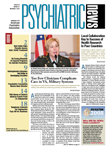The Food and Drug Administration (FDA) issued a safety alert to health care professionals regarding the risk of arrhythmias and sudden death associated with haloperidol administered intravenously or at a higher-than-recommended dose.
Haloperidol injection, available as a decanoate salt and a lactate salt, is approved for intramuscular administration only, but intravenous use is a“ relatively common offlabel” use to treat severe agitation in intensive care units, according to the FDA.
The agency cited at least 28 cases of torsades de pointes and prolongation of the QT interval, some resulting in death, associated with intravenous use of haloperidol in the medical literature. In postmarketing analyses conducted by Johnson and Johnson, the manufacturer of the brand-name product Haldol, 229 reports of adverse events related to QT prolongation were identified with all formulations and uses of the drug in their worldwide safety database up to June 2005, including cases that the company described as “confounded by concomitant QT-prolonging drugs or medical conditions.”
The analyses and reports had been requested by the Italian equivalent of the FDA. The reports included 73 cases of torsades de pointes, 11 of which resulted in death. Eight of these 11 deaths involved intravenously administered haloperidol. A second postmarketing safety analysis, which the company also conducted for the Italian agency and submitted to the FDA in March, included 13 cases involving torsades de pointes, QT prolongation, ventricular arrhythmias, and/or sudden death, according to the FDA. The FDA alert states that the frequency of these adverse effects cannot be estimated based on these case reports.
In September, the FDA approved labeling revisions to include an additional warning about the risks of sudden death, QT prolongation, and torsades de pointes. The updated warning advises caution in using any formulation of haloperidol in patients who “have other QT-prolonging conditions, including electrolyte imbalance; have underlying cardiac abnormalities, hypothyroidism, or familial long QT syndrome”; or are taking concomitant drugs with QT-prolonging effects. The new label also recommends ECG monitoring if haloperidol is given intravenously.
The prescribing information for haloperidol recommends an intramuscular dosage of 2 to 5 mg for acutely agitated schizophrenia patients with moderately severe to very severe symptoms. “Depending on the response of the patient, subsequent doses may be given, administered as often as every hour, although 4- to 8-hour intervals may be satisfactory,” according to the package insert. No definition of high dose for intravenous haloperidol is given in the FDA alert.
The updated prescribing information had not been posted on the FDA's Web site by press time.
The FDA alert for haloperidol is posted at<www.fda.gov/cder/drug/InfoSheets/HCP/haloperidol.htm>.▪
